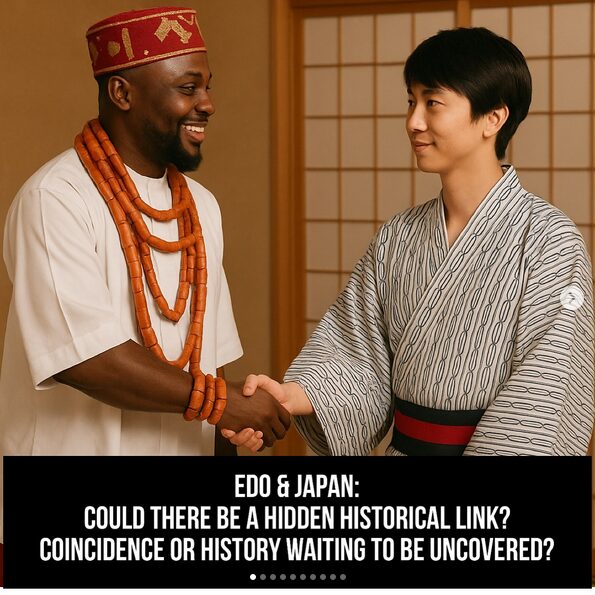It’s a question that sparks curiosity among history enthusiasts and culture lovers alike: Could the Edo people of Benin have had historical ties with Japan? 🇳🇬🇯🇵
At first glance, the connection might seem far-fetched — but some coincidences are intriguing enough to warrant a closer look.
Edo and Edo: Names That Connect
The most obvious link lies in the name itself. The city of Tokyo was once known as Edo, a striking similarity to the name of the Edo people of Nigeria. While it may be a coincidence, it has captured the imagination of cultural historians and social media enthusiasts.
Cultural and Linguistic Similarities
Beyond names, some observers have noted parallels in words, titles, and cultural practices between the Edo Kingdom and traditional Japanese society. While these similarities may not constitute documented historical contact, they raise fascinating questions about cross-cultural influences and the universality of certain societal structures.
For example:
-
Hierarchy and Royal Titles: Both societies have deep respect for royalty and structured court systems.
-
Symbolic Art and Ornamentation: Edo bronze art and Japanese craftsmanship both emphasize intricate detailing and storytelling through visual media.
-
Rituals and Festivals: Ceremonial practices in both cultures show striking attention to symbolism, ancestry, and respect for traditions.
A Historical Mystery Worth Exploring
The Edo people have always maintained a distinct identity, proudly tracing their roots back to the Benin Kingdom. Yet the name coincidence, paired with cultural similarities, is a historical curiosity that continues to fascinate researchers and enthusiasts.
Is it merely a coincidence, or could there be an ancient connection yet to be fully uncovered? The truth remains uncertain, but exploring these links invites broader conversations about global cultural intersections.
Your Take
What do you think — coincidence or hidden historical connection? The story is far from closed, and history buffs are encouraged to dive deeper into this cultural enigma.


Leave a Reply